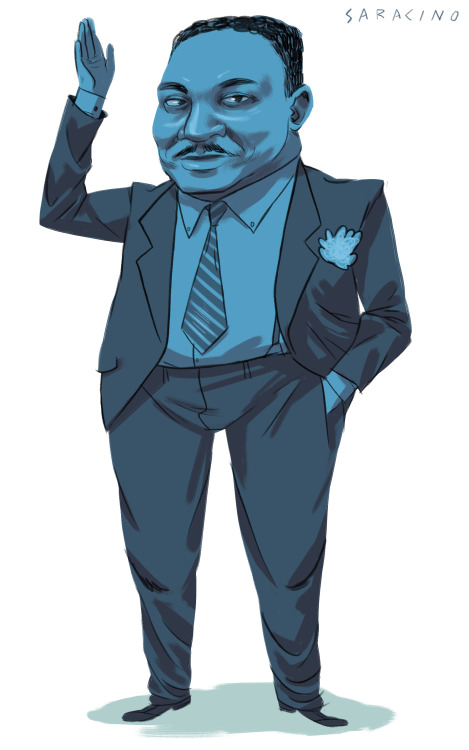
Today I spent the first fifteen minutes of my morning lying in bed, promising myself that I would not look at Twitter or other social media channels before thinking about Martin Luther King on my own terms. I imagined seeing in those streams of messaging the seemingly inevitable appropriations.
I imagined the left hammering away at reminding of his work on economic injustice and war resistance, some with grace and others with more than a touch of condescension native to those who pride themselves on their self imposed intellectual superiority.
I imagined the right, willfully ignoring King’s work on economic injustice, celebrating his accomplishments on race relations. I imagined them, in doing so, reminding anyone with historical wherewithal that American conservatism and aspirations of white dominance were not long ago very much one in the same.
I imagined the politicians doing their Martin Luther King Day events and turning them into shared pictures and sound bites.
I imagined the thousands of inevitable arguments in which one party snarkily declares another to be woefully ignorant of what Dr. King was really all about.
I imagined the shaming of the idiots who demand to know where their white holiday is.
And then I got a message on Facebook, opened the app on my phone, forgot my promise, checked my feed and then hopped onto Twitter and did the same there. I saw a touch of the aforementioned phenomena, but was smart enough to hop off before I got in too deep.
I am one of those lefties who appreciates King’s work on race, of course, but I also greatly admire him for using his heft to bring attention to economic injustice and American Imperialism. Of course he saw it all as part of the same crushing machine and treated each issue as such, but it is easy to buy into fragmented interpretations of his legacy. What I appreciate about him most, though, particularly when I think about his legacy in the context of my various social media specific anticipations is that he was a hero, yes, but he was also a profoundly complicated person. King did great things, admirable things, paradigm breaking things, but he was also human and he faulted as humans do. By acting in antithesis to them, he reminded us of the macabre tenacity with which the machinery built to crush our humanity, but he also reminded us of what humanity actually looks like. It is about having the capacity to be brave and to do great things as much as it is about our tendency to be weak.
For very understandable reasons, we celebrate the great accomplishments of the man and of his legacy. As this is our larger tendency, various subcultures, movements and individuals use the smaller pieces of that legacy to identify with, to sell their own message, and as a result the larger, more complicated narrative becomes splintered. We remember the objectives, the outcomes, and the bravery, but not that a man (and many, many other men and women, of course), a human being capable of all of the same screw ups as we are, helped to make that possible. We are encouraged to be great as these people were, but it is impossible to do so without realizing that they were scared just like us, they erred just like us, they tried and failed just like us. They were no super heroes. They were human beings.
It is difficult to be a complicated human in the Internet age. A man with the potential for helping to fundamentally change the way we look at service to our fellow people, at resistance, at race, at the machinery of poverty and war would have been destroyed on Twitter once a government agency brought to light his infidelities or his issues with collegiate authorship. It is not to say that these individual issues are not worthy of public scrutiny. We are easy on King in retrospect, but how willing are we to forgive potentially great people when their transgressions are brought to light, and they are thrown into the gladiator pit of judgement? This age of real-time punditry is good for identifying and scrutinizing character flaws and branding the individual with those assessments, but it still lacks in facilitating the empathy and compassion required for acknowledging how flawed our nature can be and for allowing us to grow. Empathy is tricky and abstract, destructive judgement is fun.
I realize, of course, that there are thousands of politicians, idiots, zealots and otherwise whose flawed actions are reckless and widely hurtful. They contribute to the creation of our irate tendencies and their second chances will simply be taken advantage of, or so we fear, and so it is tempting to default to Old Testament response. On this, the day that we honor Dr. King and his legacy, I wonder if he would have passed our crowd-sourced judgement gauntlet and if not, would he have been afforded the opportunity to make the impact he did.
IMAGE CREDIT: David Saracino Illustration


